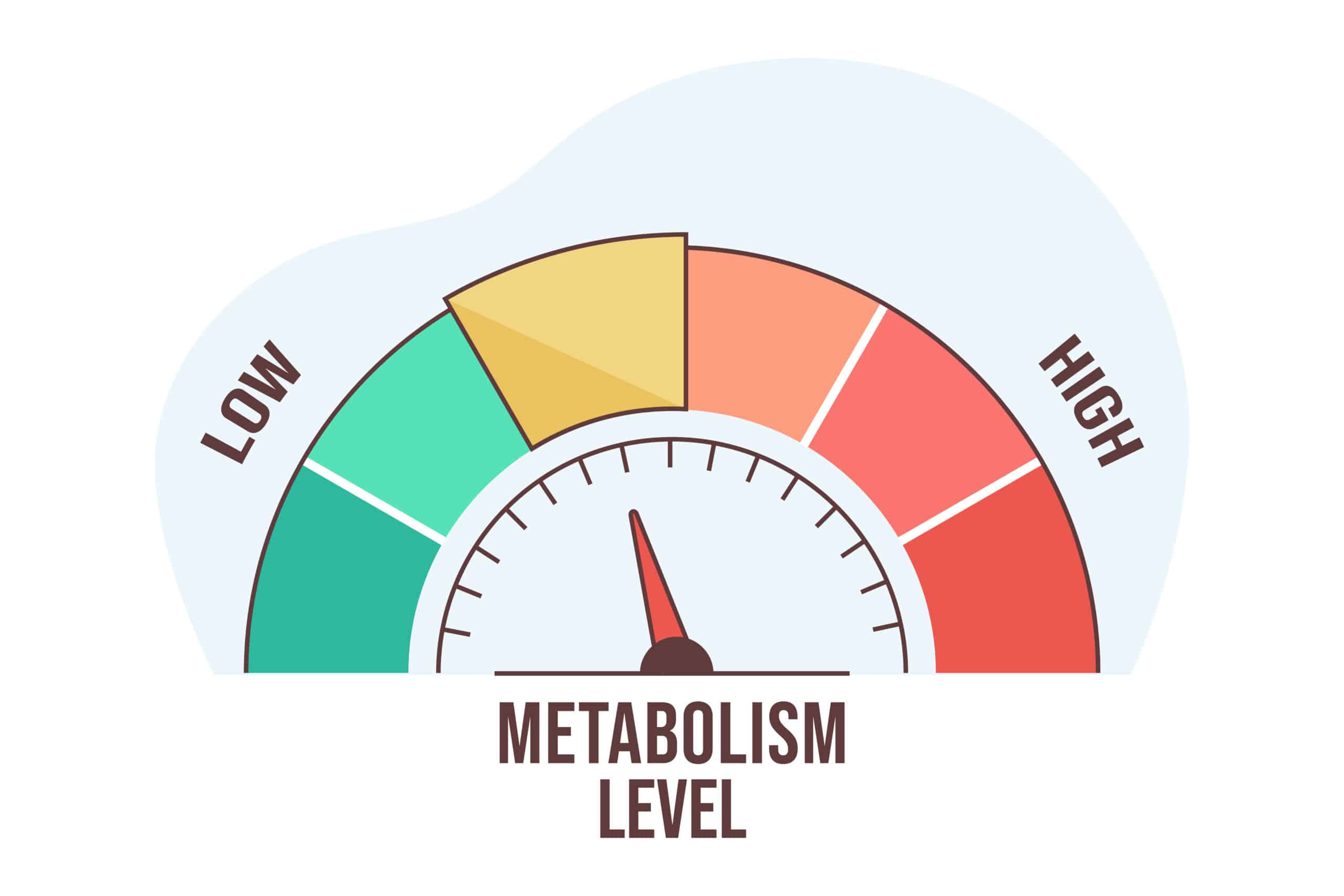How Selenium Affects Metabolism

Struggling to shed those stubborn pounds could signify something deeper than diet or exercise. Selenium, a trace mineral, is vital for metabolism and overall health. Our article dives into how this nutrient works within your body to possibly streamline your metabolic rate and improve your well-being.
Discover selenium’s secret powers—read on!
Key Takeaways
- Selenium is a mineral that helps your body work right. It’s in foods and can also be taken as a supplement. You might feel weak or get sick easier if you don’t have enough selenium.
- Having the right amount of selenium keeps your bones and joints strong. Not having enough can make them weak and lead to diseases.
- Selenium may help with knee pain from osteoarthritis by protecting cells from damage. People are considering how to use selenium to treat joint problems like this.
An Overview of Selenium and its Metabolic System

Selenium is a trace mineral that is crucial to the human body’s metabolic system. It is essential for maintaining overall health and proper functioning of the thyroid gland.
Deficiency or excess of selenium can significantly impact metabolism and overall well-being.
Discovery and properties of selenium
Scientists found selenium in 1817. They saw it as a mineral with special qualities. Selenium can change forms from solid to gas when heated. It is in the air, soil, and water around us.
This element helps our bodies work right. It’s important for making selenoproteins, which are key for health. These proteins protect cells from harm and keep your thyroid working well.
Not having enough can make you sick, but too much isn’t good either. So it’s important to balance what you eat or take as supplements.
Role in the human body
Selenium is like a tiny helper in your body that ensures everything runs smoothly. It’s found inside special proteins called selenoproteins, which protect your cells from damage and help the body work right.
These proteins are super important for keeping your heart healthy and ensuring your thyroid gland does its job well, which involves managing how fast or slow you burn calories.
Having the right amount of selenium can make a big difference. Too little selenium could lead to health problems like weak muscles or even heart disease. But too much isn’t good either; it might cause hair loss, weight gain, or other issues.
To stay healthy, it’s all about balance!
Effects of deficiency and excess
Not having enough selenium can lead to problems in the body. This might mean your heart and other parts can’t work as well. If you don’t get enough through foods or supplements, it could mess with how well your body defends against harm.
On the other hand, too much selenium is not good either. It can make you sick with something called selenosis. Eating lots of foods high in selenium or taking more supplements than you need can cause bad health effects.
You must find a balance to ensure your body stays happy and healthy!
The Importance of Selenium and Selenoproteins in Cartilage and Bone Health

Selenium plays a crucial role in the development of cartilage and bone health, as it is essential for the function of selenoproteins that regulate cellular processes related to skeletal tissue.
Abnormalities in selenium metabolism have been linked to skeletal diseases, highlighting the significance of maintaining adequate selenium levels for overall joint and bone health.
Role in cartilage development
Selenium is vital for cartilage development and bone health. It plays a crucial role in producing selenoproteins, essential for maintaining cartilage and bones’ overall health.
These selenoproteins are involved in various physiological processes, such as antioxidant defense, redox regulation, and thyroid hormone metabolism. Without adequate selenium levels, there can be abnormalities in selenium metabolism that may lead to skeletal diseases, emphasizing the significance of selenium in supporting healthy cartilage development and bone maintenance.
In conclusion, ensuring sufficient selenium intake is important for maintaining proper cartilage development and overall bone health. Selenoproteins dependent on selenium play a significant role in various physiological processes within the body, making it essential to pay attention to one’s selenium levels to support healthy cartilage and bones.
Selenium levels and joint tissues
Selenium, an essential mineral for the body, is crucial in maintaining healthy joint tissues. Studies suggest that inadequate selenium levels may affect cartilage development and bone health.
Low selenium levels have been linked to abnormalities in skeletal structures and metabolism, emphasizing the importance of maintaining optimal selenium intake for overall joint health.
Additionally, research has highlighted the connection between selenium metabolism and cartilage health. It is important to ensure adequate dietary sources of selenium or consider supplementation to support joint tissue integrity and overall bone well-being.
Abnormalities in selenium metabolism and skeletal diseases
Abnormalities in selenium metabolism can lead to skeletal diseases such as Kashin-Beck disease. Understanding the significance of selenoproteins and selenium is crucial for addressing these abnormalities and preventing skeletal diseases related to selenium deficiency.
This highlights the critical role of maintaining optimal levels of selenium for overall bone health and proper skeletal system functioning.
Selenium is key in preventing skeletal diseases because it involves various metabolic processes. Ensuring sufficient intake of this essential mineral through diet or supplementation is important for supporting healthy bones and preventing abnormalities associated with selenium metabolism.
Selenium’s Potential Role in Osteoarthritis
Selenium has been shown to potentially mitigate osteoarthritis’s effects by counteracting oxidative stress, influencing chondrogenic differentiation, and enhancing antioxidant defense.
Keep reading to learn more about how selenium impacts osteoarthritis and its potential as a therapeutic agent!
Oxidative stress and chondrocytes
Oxidative stress, where there is an imbalance between the production of free radicals and the ability of the body to counteract their harmful effects, plays a crucial role in chondrocytes, which are cartilage cells.
Selenium metabolism and selenoproteins are essential in combating oxidative stress in these cells. Research suggests that selenium nanoparticles can potentially reduce oxidative stress in chondrocytes.
Moreover, it has been found that oxidative stress and dysregulation of selenium are linked to the initiation of osteoarthritis pathogenesis. This indicates the important role of selenium in maintaining healthy cartilage and bone tissue.
By understanding how selenium functions within our bodies, especially its impact on combating oxidative stress in chondrocytes, we can make informed choices about incorporating sufficient levels of this mineral into our diets or considering selenium supplementation when necessary.
Effects on chondrogenic differentiation
Selenium supplements and dietary intake are crucial in regulating the differentiation of chondrocytes, the cells responsible for cartilage formation. Studies have indicated that selenium can influence the development of osteoarthritis by impacting chondrogenic differentiation processes.
Additionally, selenium nanoparticles have shown promising effects on chondrogenic differentiation, suggesting a potential avenue for managing osteoarthritis through selenium-based interventions.
Furthermore, trace elements such as selenium may impact chondrogenic differentiation and potentially contribute to preventing or progressing conditions like osteoarthritis. These findings underscore the importance of maintaining optimal selenium levels for supporting healthy cartilage development and mitigating skeletal diseases related to abnormal chondrogenic differentiation processes.
Impact on antioxidant defense and DNA repair
Selenium is crucial for antioxidant defense and DNA repair, playing a potential role in osteoarthritis. It’s part of selenoproteins that help protect against oxidative stress and maintain the body’s cellular redox balance.
The impact of selenium on antioxidant defense and DNA repair is closely tied to its potential influence on osteoarthritis and its effects on metabolism, making it an essential mineral for maintaining overall health.
In studies, selenium has shown promise in aiding the body’s defense against oxidative damage, which can affect various health conditions. With its involvement in supporting antioxidant mechanisms and DNA repair processes, ensuring adequate selenium intake through diet or supplementation may contribute to better overall health outcomes.
Perspectives on using selenium-based therapies for treating arthropathies
Selenium-based therapies show promise for treating arthropathies due to their potential to restore redox homeostasis in cartilage. Recent studies have highlighted the interconnectedness of selenium metabolism and arthropathies, indicating a growing interest in utilizing selenium for these conditions.
Furthermore, the role of selenium nanoparticles in osteoarthritis has been specifically studied, emphasizing the targeted focus on using selenium-based treatments for arthropathies.
Additionally, since selenium plays a crucial role in gut microflora and overall human health, it may have broader implications for arthropathies beyond its direct effects on joint tissues.
These perspectives emphasize the need for further exploration into selenium’s therapeutic potential and its comprehensive impact on various aspects of health, including arthropathies.
FAQs
Q: What is selenium, and how does it affect metabolism?
A: Selenium is an important mineral that is essential in regulating metabolism. It helps the body convert food into energy and supports thyroid function, which in turn helps regulate metabolism.
Q: What are the health benefits of selenium?
A: Selenium offers a range of health benefits, including supporting the immune system, acting as an antioxidant, and promoting thyroid health and metabolism regulation.
Q: What are the sources of selenium?
A: Selenium can be found in various foods such as seafood, Brazil nuts, sunflower seeds, chicken, eggs, and whole grains.
Q: How much selenium should one intake daily?
A: The recommended dietary allowance for selenium is around 55 micrograms per day for adults. However, individual needs may vary based on age, sex, and overall health.
Q: Can taking a selenium supplement help with weight loss?
A: Some studies suggest that selenium supplementation may help regulate metabolism and support weight loss. However, consulting with a healthcare professional before starting any supplementation is important.
Q: What are the potential effects of excessive selenium intake?
A: Excessive selenium intake can lead to selenium toxicity, which may cause symptoms such as hair loss, nausea, diarrhea, and, in severe cases, organ damage. It’s important to stay within the recommended daily allowance for selenium.
Q: How does selenium impact thyroid function?
A: Selenium is essential for normal thyroid function. It helps regulate the production and metabolism of thyroid hormones, vital for maintaining a healthy metabolic rate.
Q: What selenium-rich foods can be included in the diet?
A: Selenium-rich foods include Brazil nuts, seafood (such as tuna, halibut, and sardines), sunflower seeds, eggs, chicken, and whole grains like brown rice and oatmeal.
Q: Can selenium help regulate metabolism and support weight loss?
A: Selenium plays an important role in regulating metabolism and thyroid function. Some research suggests that optimal selenium levels may contribute to weight management, but individual results may vary.
Q: What happens if someone is selenium deficient?
A: Selenium deficiency can impact thyroid function and metabolism, potentially leading to symptoms like fatigue, weight gain, and cognitive issues. It’s important to maintain adequate selenium levels through diet or supplementation.

